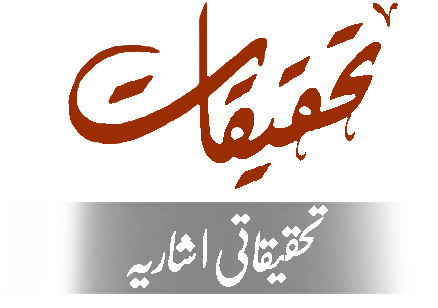تلخیص
Benefits of breast feeding have been known to
mankind from a long time. It is not only involved in
the physical growth of the baby but also
improves psychological association between
mother and infant. It reduces the risk of
malnutrition and common infectious diseases,
which are the leading causes responsible for
infant mortality in the developing countries.1
Pakistan still has a very high infant mortality rate.
The diseases that contribute to it are mostly
infectious diseases like diarrhea and pneumonia.
Breastfeed is known to contain antibodies and a
variety of nonspecific defense factors that
contribute to its antimicrobial effects2. So, one of
the most effective strategies for reducing infant
morbidity and mortality in resource limited
situation (i.e. human and infrastructural
constraints) is the promotion of exclusive
breastfeeding for the first 6 months of the infant’s
life. Further the World Health Organization (WHO)
recommends timely initiation of breastfeeding
within the first hour of birth, exclusively
breastfeeding up to the age of 6 months and
continued breastfeeding through to 24 months
along with appropriate complementary feeding.
Colostrums, due to its composition of
immunoglobulins, other proteins, vitamin A etc is
considered as the first immunization of the
newborn. According to the Lancet’s Series on
Child Survival, increasing breastfeeding
prevalence to optimal levels could reduce 13 %
of all child deaths in low income countries3.
Breastfeeding is known to decrease the
incidence of infections in children such as
pneumonia, otitis media; various immune
disorders e.g. inflammatory bowel disease;
leukemia and many other diseases.
Mothers are also benefited by breastfeeding.
They face great health risks by not breastfed and
even by weaning off breast milk prematurely if
breastfeeding is initiated4. Breastfeeding
significantly reduces risk of invasive breast
cancer, ovarian cancer, diabetes mellitus,
hyperlipidemia, hypertension, myocardial
infarction, obesity and other long term metabolic
health issues.
Despite these facts and beneficial role of
breastfeeding in infant and maternal health, in
our country the optimal breastfeeding practices
are not up to the mark. Multiple factors
contribute to this like parity of mother, mode of
delivery, educational status of the mother, family
practices especially the role of grandparents and
maternal employment. There is not only lack of
exclusive breast feeding in our country, but also
prevalence of certain unsafe practices like
prelecteal feeds, discarding the colostrum. It is
the need of the time and the utmost duty of a
health care provider to educate not only the
mother but also the influential family members
regarding the benefits of breast feeding.
Expectants mothers should be counseled and
supported on breastfeeding. Early during
pregnancy their concerns and questions should
be addressed. The mothers should be advised
about the benefits of breastfeeding for both
maternal and infant health and well being. They
should be encouraged to make a breastfeeding
support plan that may include family and friend.
Mothers should be reminded that breastfeeding
does not hurt, and it does they should seek help.
Mothers should breastfeed for 2 years (at least 12
months). Exclusive breastfeeding is
recommended for the first 6 months of life. Soon
after birth, skin-to-skin contact should be
encouraged and breastfeeding should be
initiated as soon as possible after birth. It is
advised that the baby should be fed on
demand. Use of bottle feeding, pacifiers and
supplementation (unless medically indicated)
www.pakpedsjournal.org.pk
74 Butt TK, Khan HI
should be discouraged. In addition “babyfriendly” practices must be implemented in all
maternity and pediatric facilities.
Tayyaba Khawar But, Humayun Iqbal Khan. (2016) Benefits of Breastfeeding , Pakistan Pediatric Journal, Volume 40, Issue 2.
-
Views
908 -
Downloads
72


